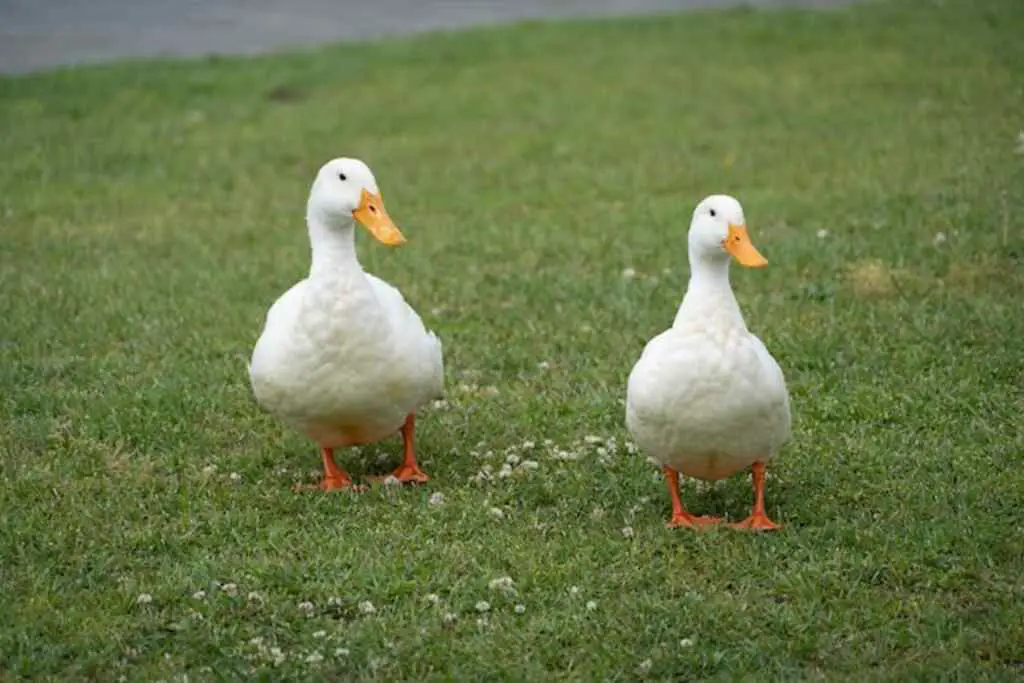Welcome to the captivating realm of ducks, where we embark on an exploration of their lifespans! Ever pondered, “How Long Do Ducks Live?” Join us as we unravel the mysteries behind the longevity of these remarkable birds. Through this guide, we’ll delve into the various factors that influence their lifespan, offering a deeper understanding of their journey through the avian world.
Table of Contents
- 1 Duck Lifespan
- 2 Duck Aging
- 3 Duck Lifespan in the Wild and in Captivity
- 4 Environmental Factors and Duck Lifespan
- 4.1 Duck Habitat and Lifespan
- 4.2 How Does Habitat Destruction Impact Duck Lifespan?
- 4.3 Do Predators Affect Duck Lifespan?
- 4.4 How Do Ducks Die in the Wild?
- 4.5 Can a Duck’s Lifespan Be Extended in Captivity?
- 4.6 How Does Climate Affect Duck Lifespan?
- 4.7 Can Human Activity Impact Duck Lifespan?
- 4.8 What Is the Impact of Pollution on Duck Lifespan?
- 4.9 How Does Nutrition Impact Duck Lifespan?
- 4.10 What Affects the Lifespan of Ducks in the Wild?
- 4.11 How Does Habitat Fragmentation Affect Duck Lifespan?
- 4.12 Can Ducks Die from Exposure to Toxins or Pollutants?
- 4.13 How Does Predation Impact Duck Lifespan in Different Regions?
- 4.14 How Do Environmental Factors Such as Water Quality Affect Duck Lifespan?
- 4.15 How Does Migration Impact Duck Lifespan?
- 4.16 How Does Climate Change Impact Duck Lifespan?
- 5 Duck Species and Lifespan
- 5.1 Duck Species Lifespan Comparison
- 5.2 What Is the Lifespan of Mallard Ducks?
- 5.3 How Do Different Duck Breeds Age?
- 5.4 Do Male and Female Ducks Have Different Lifespans?
- 5.5 Do Different Duck Breeds Have Different Lifespans?
- 5.6 What Is the Lifespan of Male and Female Ducks?
- 5.7 What Is the Average Lifespan of Different Duck Species?
- 5.8 How long do Pekin ducks live?
- 5.9 How long do wild ducks live?
- 5.10 How long do ducks live in captivity?
- 5.11 How long do ducks live as pets?
- 6 How to Care for Ducks to Ensure They Live a Long and Healthy Life
- 7 Author
Duck Lifespan
If you are interested in keeping ducks as pets or farming them for meat or eggs, you might wonder how long they live. This section will provide you with an overview of duck lifespan, including their life expectancy, average lifespan, maximum lifespan, mortality rate, and factors affecting their lifespan.
Life Expectancy of Ducks
Ducks, like any other animal, have a limited lifespan. Their life expectancy depends on various factors, including their breed, living conditions, diet, and genetics. In general, domestic ducks live longer than wild ducks because they are protected from predators and have access to better nutrition.
Average Lifespan of Ducks
On average, ducks live between 5 to 10 years, depending on their breed and living conditions. However, some ducks can live much longer if they are well-cared for. For instance, bantam ducks can live between 10 to 12 years, while Khaki Campbell ducks can live up to 15 years.
Maximum Lifespan of Ducks
The Guinness Book of World Records reports that the longest-ever recorded lifespan of ducks is 49 years. However, this is an exceptional case, and most ducks do not live that long. In general, the maximum lifespan of ducks ranges from 15 to 20 years, depending on their breed and living conditions.
Duck Mortality Rate
Ducks, like any other animal, are susceptible to diseases, parasites, and injuries that can affect their lifespan. The mortality rate of ducks varies depending on their age, breed, and living conditions.
For instance, ducklings have a higher mortality rate than adult ducks because they are more vulnerable to predators, diseases, and accidents. In general, the mortality rate of ducks is around 5% to 10% per year.
Factors Affecting Duck Lifespan
Several factors can affect the lifespan of ducks, including:
- Genetics: Some breeds of ducks are more prone to diseases and health problems than others.
- Living conditions: Ducks that live in clean and hygienic environments with access to fresh water, food, and shelter are less likely to get sick or injured.
- Diet: Ducks that are fed a balanced and nutritious diet are less likely to develop health problems than those that are fed a poor diet.
- Predators: Ducks that are exposed to predators such as foxes, raccoons, and hawks are more likely to get injured or killed.
- Stress: Ducks that are stressed due to overcrowding, noise, or other factors are more likely to develop health problems and have a shorter lifespan.
In conclusion, ducks have a limited lifespan that depends on various factors, including their breed, living conditions, diet, and genetics. By providing your ducks with a clean and hygienic environment, a balanced and nutritious diet, and protection from predators and stress, you can help them live a long and healthy life.
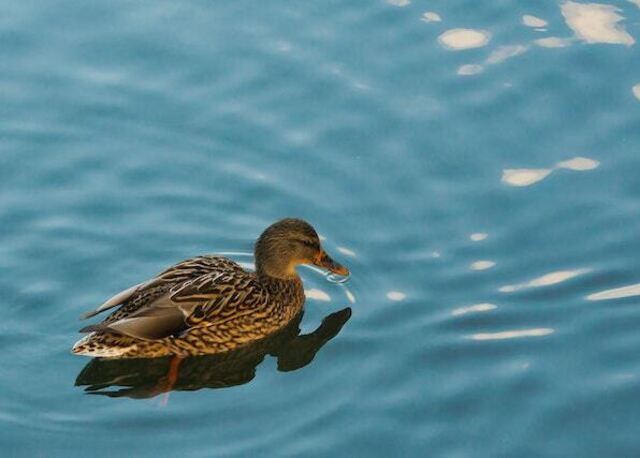
Duck Aging
How Do Ducks Age?
Ducks, like most living creatures, age over time. As ducks age, they tend to become less active and may experience changes in their physical appearance.
For example, their feathers may become less vibrant, and their beaks may become less sharp. Additionally, older ducks may experience a decline in their ability to reproduce.
What Affects the Lifespan of Ducks in the Wild?
In the wild, ducks face a variety of challenges that can affect their lifespan. One of the biggest challenges is predation. Many predators, such as foxes, raccoons, and birds of prey, prey on ducks.
Additionally, ducks may be exposed to diseases and other environmental factors that can impact their health and lifespan.
Natural Causes of Duck Mortality
In addition to predation and environmental factors, ducks can also die of natural causes. For example, ducks may succumb to old age or disease. Additionally, ducks may die as a result of accidents, such as collisions with objects or drowning.
Duck Breeding and Lifespan
The lifespan of ducks can vary depending on their breed and how they are cared for. Domesticated ducks that are well-cared for can live for many years, with some living for over 20 years. However, wild ducks typically have shorter lifespans due to the challenges they face in their natural environment.
In conclusion, understanding how ducks age and the factors that affect their lifespan can help you care for them properly. By providing them with a safe and healthy environment, you can help ensure that they live long and happy lives.
Duck Lifespan in the Wild and in Captivity
Ducks are fascinating birds that have a lifespan that varies depending on whether they are living in the wild or in captivity. In this section, we will explore the lifespan of ducks in both settings.
Wild Duck Lifespan
Ducks living in the wild face many challenges, including predators, disease, and harsh weather conditions. As a result, many ducklings do not survive their first month of life. However, those that do survive can live for at least 5 to 8 years.
It has been documented that certain wild ducks can survive up to the age of 20 or more. The lifespan of wild ducks varies depending on the species, with some living longer than others.
Domestic Duck Lifespan
Domestic ducks have a longer lifespan than their wild counterparts. The average lifespan of a domestic duck is between 8 to 10 years, but some breeds can live for up to 15 years. Bantam ducks have the longest life expectancy among all duck breeds, with some living up to 12 years.
Waterfowl Lifespan
Waterfowl, including ducks, geese, and swans, have a similar lifespan to ducks. They can live for up to 20 years in the wild, depending on the species and environmental conditions.
Duck Lifespan in Captivity
Ducks kept in captivity, such as on farms or in zoos, can live longer than those in the wild. This is because they have access to a steady supply of food and protection from predators. Domesticated ducks kept in captivity can live up to 15 years or more, depending on the breed.
Do Ducks Live Longer in the Wild or in Captivity?
Ducks can live longer in captivity than in the wild due to the absence of predators and a steady food supply. However, some ducks may not adapt well to captivity and may have a shorter lifespan. In the wild, ducks face many challenges, but those that survive can live for many years.
Do Domesticated Ducks Live Longer than Wild Ducks?
Domesticated ducks generally have a longer lifespan than wild ducks. This is because they are protected from predators and have access to a steady supply of food. However, some domesticated ducks may have health problems due to selective breeding, which can shorten their lifespan.
Overall, the lifespan of ducks varies depending on the species, environmental conditions, and whether they are living in the wild or in captivity. By understanding the lifespan of ducks, we can better care for these fascinating birds and appreciate their unique characteristics.
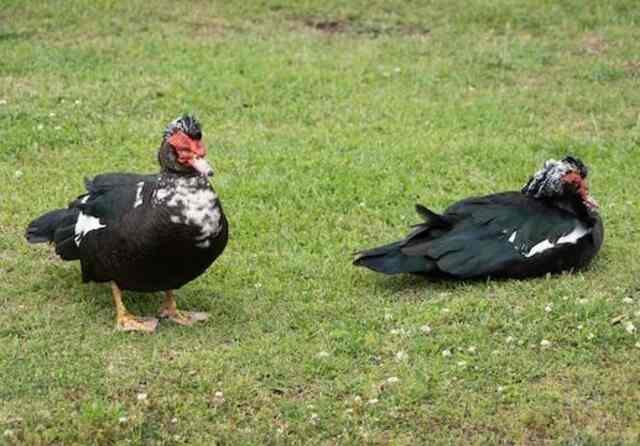
Environmental Factors and Duck Lifespan
Duck Habitat and Lifespan
Ducks can be found in a variety of habitats, including wetlands, rivers, lakes, and ponds. The habitat in which a duck lives can have a significant impact on its lifespan.
For example, ducks that live in wetlands with abundant food sources and nesting areas tend to live longer than those in areas with less food and nesting opportunities.
How Does Habitat Destruction Impact Duck Lifespan?
Habitat destruction can have a significant impact on duck populations and lifespan. When wetlands and other habitats are destroyed, ducks lose their food sources and nesting areas, which can lead to a decrease in their lifespan.
Do Predators Affect Duck Lifespan?
Predators can have a significant impact on the lifespan of ducks. Predators such as foxes, raccoons, and coyotes can prey on ducklings and adult ducks, reducing their lifespan.
How Do Ducks Die in the Wild?
Ducks can die in the wild from a variety of causes, including predation, disease, and exposure to the elements. Additionally, ducks can become entangled in fishing nets, plastic waste, and other debris, which can lead to injury or death.
Can a Duck’s Lifespan Be Extended in Captivity?
Ducks kept in captivity can live longer than those in the wild if they are provided with proper care and nutrition. However, captivity can also lead to health problems and a shorter lifespan if the ducks are not given the proper care.
How Does Climate Affect Duck Lifespan?
Climate can have a significant impact on duck populations and lifespan. Changes in temperature and rainfall patterns can affect the availability of food and nesting areas, which can lead to a decrease in lifespan.
Can Human Activity Impact Duck Lifespan?
Human activity can have a significant impact on duck populations and lifespan. Activities such as hunting, pollution, and habitat destruction can all lead to a decrease in lifespan.
What Is the Impact of Pollution on Duck Lifespan?
Pollution can have a significant impact on duck populations and lifespan. Exposure to pollutants such as oil and chemicals can lead to health problems and a shorter lifespan.
How Does Nutrition Impact Duck Lifespan?
Proper nutrition is essential for a duck’s health and lifespan. A diet that is high in protein and nutrients can help ducks live longer and healthier lives.
What Affects the Lifespan of Ducks in the Wild?
Several factors can affect the lifespan of ducks in the wild, including habitat quality, food availability, predation, and exposure to pollutants and toxins.
How Does Habitat Fragmentation Affect Duck Lifespan?
Habitat fragmentation can have a significant impact on duck populations and lifespan. When habitats are fragmented, ducks lose their food sources and nesting areas, which can lead to a decrease in their lifespan.
Can Ducks Die from Exposure to Toxins or Pollutants?
Exposure to toxins and pollutants can have a significant impact on duck populations and lifespan. Ducks that are exposed to these substances can develop health problems and a shorter lifespan.
How Does Predation Impact Duck Lifespan in Different Regions?
Predation can have a different impact on duck populations and lifespan in different regions. For example, in areas with high predator populations, ducks may have a shorter lifespan than those in areas with fewer predators.
How Do Environmental Factors Such as Water Quality Affect Duck Lifespan?
Water quality can have a significant impact on duck populations and lifespan. Exposure to contaminated water can lead to health problems and a shorter lifespan.
How Does Migration Impact Duck Lifespan?
Migration can have a significant impact on duck populations and lifespan. Changes in migration patterns and habitat availability can affect the availability of food and nesting areas, which can lead to a decrease in lifespan.
How Does Climate Change Impact Duck Lifespan?
Climate change can have a significant impact on duck populations and lifespan. Changes in temperature and rainfall patterns can affect the availability of food and nesting areas, which can lead to a decrease in lifespan.
Additionally, rising sea levels can lead to the loss of wetland habitats, which can further impact duck populations and lifespan.
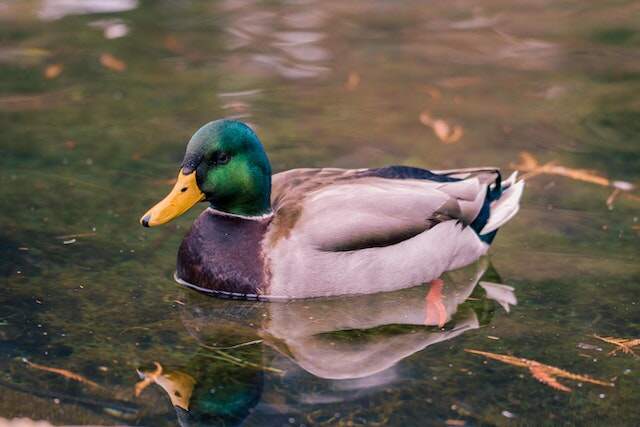
Duck Species and Lifespan
As you may already know, ducks are known for their short lifespan compared to other animals. However, the lifespan of a duck can vary depending on the breed, sex, and living conditions. In this section, we will explore the lifespan of different duck species and how they compare to each other.
Duck Species Lifespan Comparison
Here is a detailed table with the lifespan comparison of various duck species:
| Duck Species | Lifespan Range |
|---|---|
| Pekin ducks | 7 to 12 years |
| Muscovy ducks | 8 to 12 years |
| Indian Runner ducks | 7 to 9 years |
| Khaki Campbell ducks | 8 to 10 years |
| Rouen ducks | 5 to 8 years |
| Call ducks | 5 to 7 years |
| Mallard ducks | 5 to 10 years |
| Swedish Blue ducks | 7 to 9 years |
| Cayuga ducks | 7 to 10 years |
| Black Duck | 26 years, 5 months |
| Redhead | 22 years, 7 months |
| Blue-Winged Teal | 23 years, 3 months |
| Wood Duck | 22 years, 6 months |
It is important to note that the lifespan of a duck can vary depending on several factors, such as genetics, diet, environment, and healthcare.
The first section of the table includes the lifespan range for commonly raised duck species, such as Pekin, Muscovy, Indian Runner, Khaki Campbell, Rouen, Call, Mallard, Swedish, and Cayuga ducks.
The second section of the table includes the lifespan range for some wild duck species, such as the Black Duck, Redhead, Blue-Winged Teal, and Wood Duck. These species are not commonly raised as pets or for commercial purposes, but they are important for conservation efforts and research.
What Is the Lifespan of Mallard Ducks?
Mallard ducks are one of the most common duck species found in North America. On average, they live for 5–10 years in the wild. However, some mallard ducks have been known to live up to 27 years in captivity.
How Do Different Duck Breeds Age?
Different duck breeds age differently. For example, Call ducks, a smaller breed than white ducks, can live from 7 to 10 years. Among all duck breeds, Bantam ducks are known to have the longest lifespan. On average, ducks typically live between 8 to 10 years.
Do Male and Female Ducks Have Different Lifespans?
There is no significant difference in lifespan between male and female ducks. However, female ducks tend to live longer in captivity than in the wild due to better living conditions.
Do Different Duck Breeds Have Different Lifespans?
Yes, different duck breeds have different lifespans. For example, the maximum lifespan of a Khaki Campbell duck is 15 years. The lifespan of a black duck is 26 years and five months, while the lifespan of a redhead duck is 22 years and seven months.
What Is the Lifespan of Male and Female Ducks?
As mentioned earlier, there is no significant difference in lifespan between male and female ducks. Both sexes can live for 5-10 years in the wild, depending on the breed and living conditions.
What Is the Average Lifespan of Different Duck Species?
The lifespan of different duck species varies significantly. For instance, the average lifespan of a mallard duck is 5-10 years, while the average lifespan of a black duck is 26 years and five months. The lifespan of a blue-winged teal is 23 years and three months, and the lifespan of a wood duck is 22 years and six months.
In conclusion, ducks have a relatively short lifespan compared to other animals. However, the lifespan of a duck can vary depending on the breed, sex, and living conditions. By understanding the lifespan of different duck species, you can provide better care for your ducks and ensure they live a healthy, happy life.
How long do Pekin ducks live?
Pekin ducks typically have a lifespan of 7 to 12 years when well-cared for in a domestic setting.
How long do wild ducks live?
Wild ducks generally have a shorter lifespan, with an average of 2 to 5 years due to various environmental challenges and natural predators.
How long do ducks live in captivity?
Ducks in captivity, when provided with proper care and a safe environment, can live anywhere from 5 to 10 years or even longer, depending on the breed and individual health.
How long do ducks live as pets?
Ducks kept as pets can enjoy a lifespan similar to those in captivity, ranging from 5 to 10 years or more, depending on their breed, care, and living conditions.
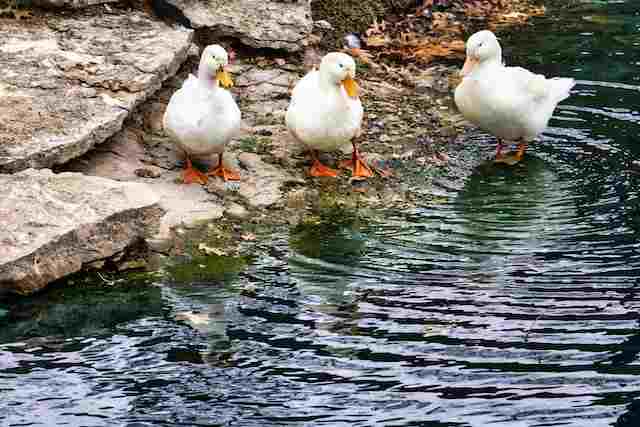
How to Care for Ducks to Ensure They Live a Long and Healthy Life
- Provide a spacious and safe living area with access to water and shade.
- Feed them a balanced diet that includes a mix of grains, vegetables, and protein.
- Regularly clean their living area to prevent the buildup of bacteria and parasites.
- Keep an eye out for any signs of illness or injury and provide appropriate medical care as needed.
- Protect your ducks from predators such as foxes, raccoons, and birds of prey.
- Socialize them with other ducks or provide them with appropriate toys and activities to prevent boredom and depression.

